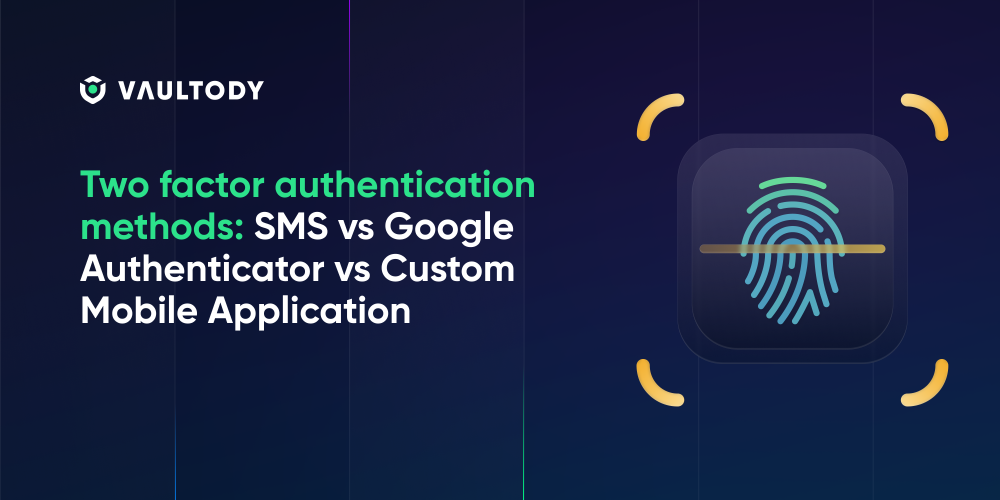Introduction:
In an increasingly digital world where security breaches are becoming more prevalent, it's crucial to adopt robust measures to protect our online accounts. Two-Factor Authentication (2FA) has emerged as a powerful tool for enhancing security, and while SMS and Google Authentication have been widely used, they come with certain limitations. However, using your own mobile application for 2FA offers several distinct advantages that can greatly enhance your security and peace of mind. In this blog post, we will explore why leveraging a dedicated mobile application for 2FA is a superior choice.
Enhanced Security:
One of the primary reasons to opt for a dedicated mobile application for 2FA is the heightened security it offers. While SMS-based authentication is vulnerable to SIM swapping and interception, and Google Authentication can be susceptible to phishing attacks, a dedicated mobile app provides an extra layer of security. It leverages cryptographic algorithms to generate time-based or one-time passwords, making it significantly harder for hackers to gain unauthorized access to your accounts.
Offline Authentication:
Unlike SMS-based or Google Authentication, a dedicated mobile app for 2FA doesn't rely on an internet connection. This offline capability allows you to authenticate even in remote locations with limited or no network coverage. Whether you're traveling or experiencing network outages, having a self-contained authentication method provides peace of mind knowing that you can access your accounts when needed.
Customization and Branding:
Using your own mobile application for 2FA enables you to customize and brand the authentication experience according to your preferences or business requirements. You can tailor the app's user interface to align with your brand's identity, fostering a sense of familiarity and trust among users. Additionally, you have the flexibility to incorporate additional security features or functionalities specific to your application, such as biometric authentication or device binding.
Improved User Experience:
A dedicated mobile application for 2FA often offers a seamless and user-friendly experience. It eliminates the need to switch between different apps or wait for SMS codes, saving valuable time during the authentication process. Moreover, these apps can store multiple accounts, making it convenient to manage and authenticate across various platforms or services from a single location. With intuitive interfaces and features like push notifications, the user experience is greatly enhanced.
Mitigation of Social Engineering Attacks:
SMS-based authentication can be vulnerable to social engineering attacks where attackers trick mobile network operators into transferring a victim's phone number to a new SIM card. This allows them to intercept the SMS codes and gain unauthorized access to accounts. By leveraging a dedicated mobile app, which doesn't rely on external communication channels, you can mitigate the risks associated with such attacks, ensuring a higher level of security for your accounts.
Conclusion:
While SMS and Google Authentication have served as popular forms of Two-Factor Authentication, the limitations they present in terms of security vulnerabilities, dependence on network availability, and customization options make them less favorable compared to using a dedicated mobile application. By opting for a dedicated app, you can enjoy enhanced security, offline authentication, customization, improved user experience, and protection against social engineering attacks. Implementing your own mobile application for 2FA provides a robust layer of protection for your online accounts, ensuring that your digital presence remains secure in an increasingly interconnected world.
Every sensitive activity in Vaultody Approver requires approval in addition to authorizing transaction requests according on predefined custom rules (examples: login, change password, change email, invite team member, create API key, etc.) - This adds an extra layer of security to shield your enterprise account from threats. Bitometric data was necessary for each approval.









 Copy link
Copy link